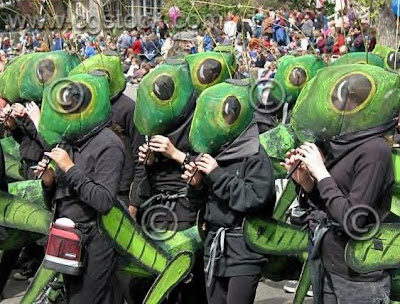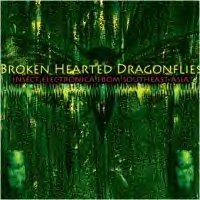 Oh, the matsumushi cricket is singing
Oh, the matsumushi cricket is singing
Chin-chiro, chin-chiro, chin-chiro-rin
Now the suzumushi bell-ring cricket is starting to sing
Rin rin rin rin ri-in rin
Calling out through the long autumn nights
Oh how beautiful are the insects' voices !
“Insect Voices”
– Japanese Nursery Rhyme
[First posted 9/21/06]
My home is miraculously placed at the base of a primeval forest – meaning it’s never been timbered – and I go very many walks and runs through its 200 acres every chance I get. I often go running when I want to experience life without the simulate self’s chatter – for some reason, I can’t think and run at the same time, I fall down. During today’s run, the intense physical experience naturally led to pondering my physical embodiment, as spirit encased within the very material it enlivens. Not only on my own seemingly individualized embodiment, but also on the embodiment of this body within the larger body of the forest, of nature, of the planet. My body is of nature, and so it is nature. A great word of power, “is” – present tense of “be”. I am nature. Nature is me. Separation is a misperception.
While in the woods, pondering led to listening, and an increased realization of something I’ve understood for a long time, which is that the sounds of nature are music to the brain. And just in the same way that music informs us of non-verbal deep, emotional aspects of our individualized immortality as it fits into the Universe, the sounds of nature reach the deepest possible places of a materialize body on Earth. I had a music professor who postulated that musical instruments were human attempts to duplicate the human voice. Perhaps — and taking this a few steps further, one could say that the human voice is the human attempt to duplicate the music of nature, which cannot exclude the immersed, embodied human experience: wind, rain, fire, birds, crickets, thunder; breathing, tears, sexuality, poetry, heartbeats.
In order to feel fully immersed, fully human, the brain must be nourished with the sounds of nature. Humanity has removed much of itself from such opportunity. This is why I’ve often suggested that one go into nature to find spiritual sustenance and relief; replenishment and grace.
A study in the 80’s of right brain/left brain responses to nature sounds revealed that “. . . Japanese and Westerners alike heard music, machinery and noise sounds in the right brain and language sounds in the left brain, but Japanese heard vowels sounds, crying, laughing and sighing, the cries of insects and animals, waves, wind, rain, running water and Japanese musical instruments in the left brain, the same as language, while Westerners heard these sounds in the right brain together with music and noise.”
http://www2s.biglobe.ne.jp/~nippon/file/jog240e.html
It’s no surprise that Japanese culture is based on the drama of nature, revealed in ceremony and ritual on every level, including their love for the voices of crickets. Since I was a child, and now, listening to crickets brings me to an incredibly deep and joyous trance state that can last for hours.
Brokenhearted Dragonflies: Insect Electronica from Southeast Asia
Droning cicadas, dragonflies and other insects display their charm as masters of the High Frequency Airwaves recorded live and unprocessed by Tucker Martine in the lush settings of Laos

, Thailand, and Burma.
 , Thailand, and Burma.
, Thailand, and Burma.

